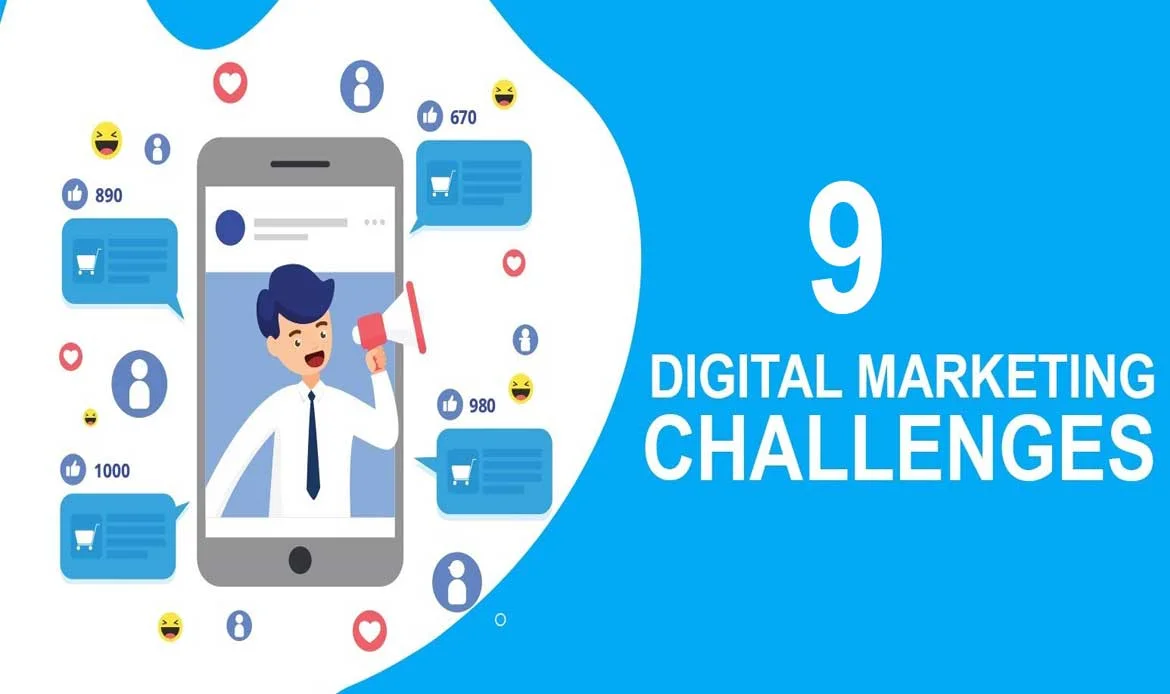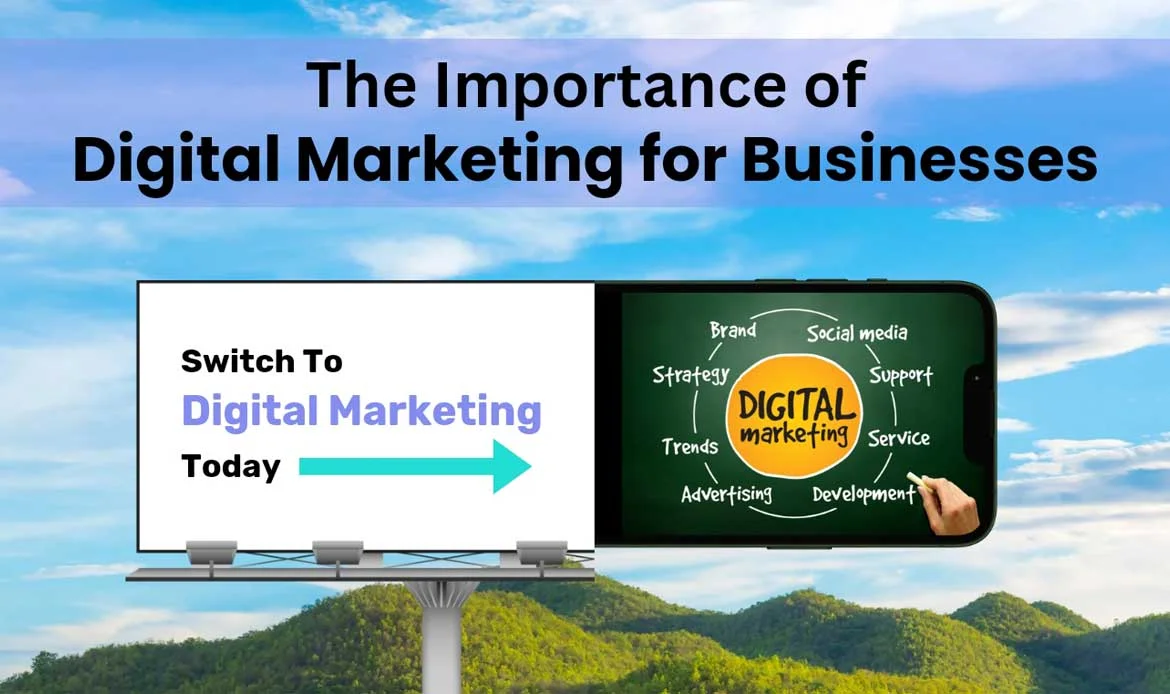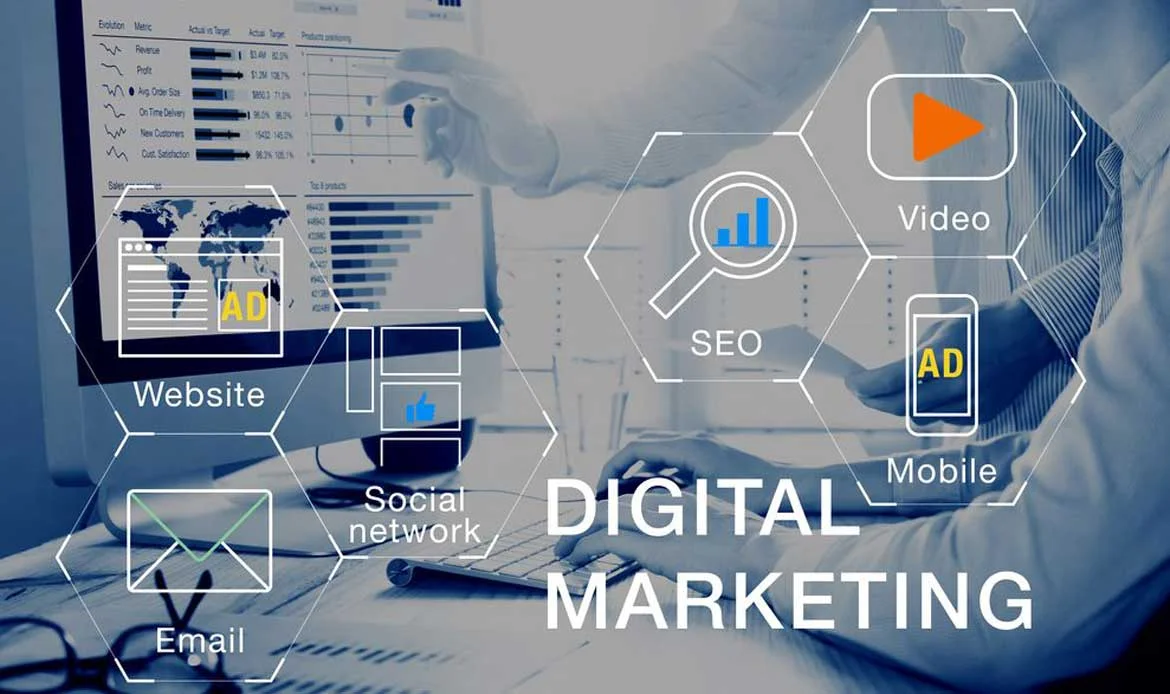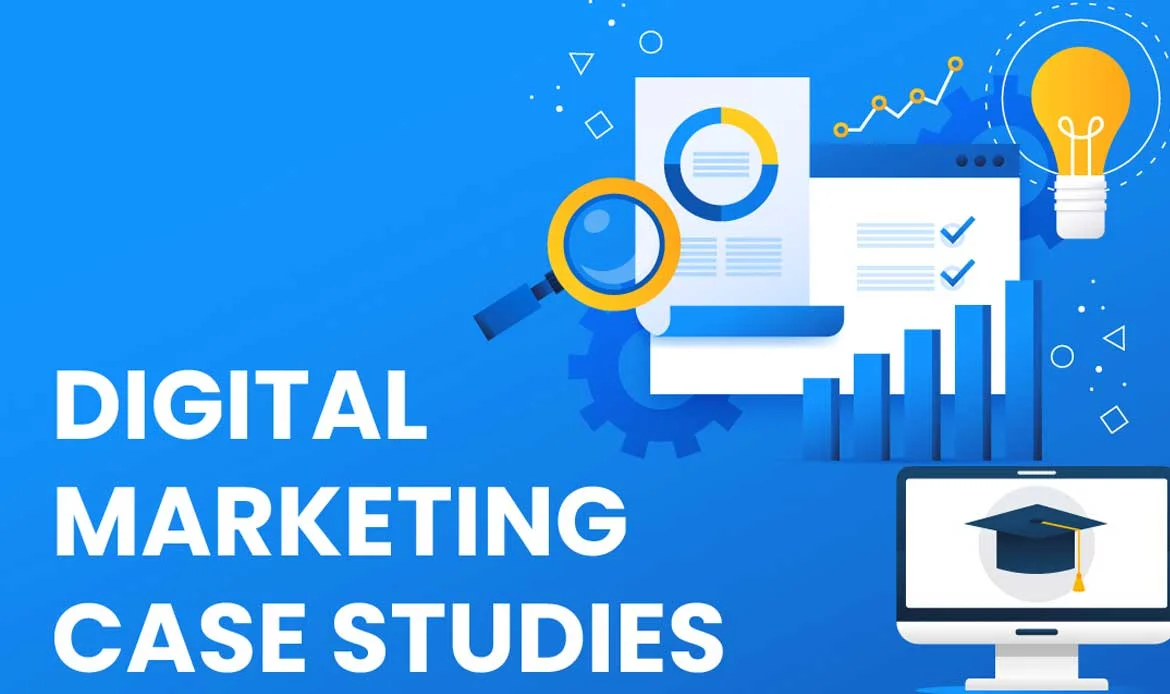1. What is Digital Marketing?
 A digital marketing guide covers all the strategies and techniques that use electronic devices or the internet to promote products and services. Digital marketing encompasses all marketing efforts that use electronic devices or the internet. It involves channels such as search engines, social media, email, and websites to connect with current and prospective customers. Unlike traditional marketing methods, digital marketing provides a more direct, measurable way to engage with audiences.
A digital marketing guide covers all the strategies and techniques that use electronic devices or the internet to promote products and services. Digital marketing encompasses all marketing efforts that use electronic devices or the internet. It involves channels such as search engines, social media, email, and websites to connect with current and prospective customers. Unlike traditional marketing methods, digital marketing provides a more direct, measurable way to engage with audiences.
The Importance of Digital Marketing
 The importance of digital marketing lies in its ability to connect businesses with their target audience more effectively than traditional methods. A well-planned digital marketing strategy helps brands boost online visibility, drive website traffic, and generate qualified leads through channels like SEO, social media marketing, content marketing, and email campaigns. With more consumers relying on mobile devices and search engines, leveraging a strong online marketing presence is no longer optional—it’s essential for sustainable business growth.
The importance of digital marketing lies in its ability to connect businesses with their target audience more effectively than traditional methods. A well-planned digital marketing strategy helps brands boost online visibility, drive website traffic, and generate qualified leads through channels like SEO, social media marketing, content marketing, and email campaigns. With more consumers relying on mobile devices and search engines, leveraging a strong online marketing presence is no longer optional—it’s essential for sustainable business growth.
Why is digital marketing important for businesses today?
Digital marketing is essential because it allows businesses to connect with their target audience more effectively than traditional methods. It boosts visibility, drives website traffic, and generates qualified leads across multiple online channels.
In today’s tech-driven world, digital marketing is essential for any business. Here’s why every digital marketing guide emphasizes its importance:
- Wide Reach: The internet connects billions of people, offering businesses access to a massive audience.
- Targeted Advertising: Digital marketing allows for targeting specific demographics based on age, interests, behavior, and location.
- Cost-Effective: Compared to traditional methods, digital marketing offers affordable options for startups and large corporations alike.
- Measurable Results: Digital tools provide analytics that allow businesses to track the success of campaigns in real-time.
- Personalization: Marketers can deliver highly personalized content to meet customer needs and preferences.
Types of Digital Marketing

Digital marketing encompasses a wide range of strategies designed to help businesses reach and engage their target audiences online. The main types of digital marketing include search engine optimization (SEO), pay-per-click (PPC) advertising, content marketing, social media marketing, email marketing, and affiliate marketing. Each type serves a unique purpose—from increasing website traffic and generating leads to building brand awareness and fostering customer loyalty.
1. Search Engine Optimization (SEO)
Search Engine Optimization (SEO) is the backbone of digital marketing, ensuring that businesses achieve higher visibility in search engine results. By optimizing website content, keywords, meta tags, and site structure, SEO helps drive organic traffic and improve online rankings. Effective SEO strategies — such as on-page optimization, link building, mobile responsiveness, and technical SEO—increase brand authority and credibility.
2. Content Marketing
Content marketing is a powerful digital marketing strategy focused on creating and sharing valuable, relevant, and engaging content to attract and retain a target audience. By producing high-quality blogs, articles, videos, infographics, and social media posts, businesses can build trust, strengthen brand authority, and drive consistent organic traffic. Unlike direct advertising, content marketing strategies aim to educate, inform, and inspire potential customers, ultimately leading to stronger connections and higher conversions.
3. Social Media Marketing
Social Media Marketing (SMM) is a vital component of digital marketing that leverages platforms like Facebook, Instagram, Twitter, LinkedIn, and TikTok to build brand awareness and engage with audiences. Through targeted social media campaigns, businesses can connect with potential customers, boost website traffic, and generate leads. Effective social media strategies involve creating engaging content, running paid ads, and analyzing performance metrics to maximize ROI. With billions of active users worldwide, social media marketing helps brands strengthen their online presence, foster customer loyalty, and drive consistent business growth.
4. Select the right AI marketing tools
Research and identify AI-powered marketing tools and platforms that align with your goals and infrastructure. These may include AI-driven analytics tools for data analysis, chatbots for customer support, predictive analytics for lead scoring, personalization engines for content customization, and more. Choose tools that offer features tailored to your specific needs and integrate well with your existing systems.
5. Pay-Per-Click (PPC) Advertising
Pay-Per-Click (PPC) advertising is a highly effective digital marketing strategy that allows businesses to drive immediate traffic and visibility through paid ads on platforms like Google Ads, Bing Ads, Facebook, and Instagram. With PPC, advertisers only pay when a user clicks on their ad, making it a cost-efficient way to reach targeted audiences. A well-structured PPC campaign includes keyword research, ad copy optimization, landing page design, and performance tracking to maximize conversions.
6. Email Marketing
email marketing involves sending personalized emails to prospects and customers. It’s highly effective for nurturing leads, promoting new products, and maintaining customer relationships.By sending personalized newsletters, promotional campaigns, and automated emails, businesses can reach their audience directly and deliver targeted messages that encourage engagement. Effective email marketing strategies include list segmentation, A/B testing, personalized content, and performance analytics, ensuring higher open rates and click-through rates.
7. Affiliate Marketing
Affiliate marketing involves partnering with influencers or other business who promote a company’s products for a commission. This extends a company’s reach and leverages the audience of affiliates. By partnering with publishers, influencers, and bloggers, brands can expand their reach, boost online visibility, and generate revenue without heavy upfront costs. Successful affiliate marketing programs rely on strong tracking systems, commission structures, and quality partnerships to ensure measurable results.
Measuring the Success of Digital Marketing

Measuring the success of digital marketing is crucial for understanding the effectiveness of campaigns and optimizing strategies for better results. By tracking key metrics such as website traffic, conversion rates, click-through rates (CTR), social media engagement, and ROI, businesses can gain insights into which tactics are performing well and which need improvement. Tools like Google Analytics, social media analytics, and marketing automation platforms make it easier to collect and analyze data.
A digital marketing guide wouldn’t be complete without covering metrics for tracking success. Here are some essential metrics:
- Website Traffic: Monitor traffic sources, page views, and sessions to gauge website performance.
- Conversion Rate: Measure the percentage of visitors who complete a desired action, such as filling out a form or making a purchase.
- Engagement Rate: Track likes, comments, shares, and mentions to understand how audiences engage with your brand on social media.
- Customer Acquisition Cost (CAC): Calculate how much it costs to acquire a customer through various digital channels.
- Return on Investment (ROI): Measure the revenue generated from marketing efforts against the costs involved.
Future Trends in Digital Marketing

The future of digital marketing is evolving rapidly, driven by new technologies, changing consumer behavior, and increasing competition. Key future trends in digital marketing include artificial intelligence (AI), voice search optimization, video marketing, immersive experiences with AR/VR, and hyper-personalization. Additionally, data privacy, automation, and omnichannel marketing will continue to shape how businesses connect with audiences.
Every forward-thinking digital marketing guide highlights these emerging trends:
- Artificial Intelligence: AI is transforming customer service, personalization, and data analysis in marketing.
- Voice Search Optimization: As voice search gains popularity, optimizing content for voice search queries is becoming essential.
- Video Content: Video continues to dominate digital marketing due to its high engagement rate.
- Spotify: Augmented Reality (AR): AR enables brands to offer immersive experiences that enhance customer engagement.
Advanced Digital Marketing Strategies

Advanced digital marketing strategies go beyond basic tactics to deliver measurable growth, higher engagement, and stronger brand authority. These strategies include multi-channel campaigns, marketing automation, influencer collaborations, data-driven personalization, and advanced SEO techniques. By leveraging tools like AI analytics, customer segmentation, and predictive modeling, businesses can create targeted campaigns that maximize ROI.
Once the basics of digital marketing are in place, businesses can explore advanced strategies to refine their campaigns, improve customer targeting, and maximize ROI. Here are some sophisticated techniques to consider:
Personalization in the Digital Marketing Guide
Personalization has become a vital element in digital marketing. Instead of one-size-fits-all messages, advanced marketers use data to create tailored experiences. This includes personalized emails, targeted ads based on browsing history, and content recommendations that adapt to user behavior. When users feel that content speaks directly to their needs, they are more likely to interact with the brand and remain loyal over time.
Data-Driven Decision Making in Digital Marketing Guide
Data is the backbone of digital marketing. Data-driven marketing allows businesses to optimize campaigns based on real-time insights, improving decision-making and enhancing customer experiences. With the right data, companies can reduce guesswork, refine their strategies, and achieve measurable results.
Marketing Automation for a Digital Marketing Guide
Automation streamlines repetitive tasks, saving time and improving efficiency. With marketing automation platforms like HubSpot or Marketo, businesses can manage complex marketing workflows, nurture leads, and personalize interactions. From scheduling social media posts to automating email campaigns, businesses can maintain consistent engagement with audiences while focusing resources on innovation and growth.
Case Studies: Successful Digital Marketing Campaigns

Examining successful digital marketing campaigns provides valuable insights into strategies that drive real results. Case studies showcase how brands have effectively used SEO, social media marketing, content marketing, email campaigns, and paid advertising to increase engagement, generate leads, and boost conversions. A detailed Digital Marketing Guide highlights examples from diverse industries, demonstrating how data-driven decisions, personalization, and innovative approaches can lead to measurable success.
A digital marketing guide is often enriched with real-world case studies. Here are some examples:
Social Media and Influencer Marketing(Nike):
Nike’s digital marketing campaigns, particularly on Instagram and Twitter, have effectively used influencer partnerships, engaging visuals, and targeted messaging. By collaborating with athletes and influencers, Nike has extended its reach and built a strong brand identity focused on empowerment and motivation.
User-Generated Content(Airbnb):
Airbnb’s marketing strategy leverages user-generated content (UGC) on platforms like Instagram, where hosts and guests share experiences. This approach has helped Airbnb build trust with potential customers and provide authentic insights into stays around the world.
Personalized Playlists(Spotify):
Spotify’s personalized playlists, such as Discover Weekly, showcase the power of data-driven marketing. By analyzing user behavior, Spotify creates custom playlists for each listener, resulting in high engagement and increased loyalty.
Marketing Automation
Automation streamlines repetitive tasks, saving time and improving efficiency. With marketing automation platforms like HubSpot or Marketo, businesses can manage complex marketing workflows, nurture leads, and personalize interactions.
Overcoming Challenges in Digital Marketing

Digital marketing presents numerous challenges, from rising competition and changing algorithms to data privacy concerns and evolving consumer behavior. A comprehensive Digital Marketing Guide emphasizes that businesses can overcome these obstacles through strategic planning, continuous learning, and adopting the latest tools and technologies. Key approaches include leveraging analytics for data-driven decisions, personalizing customer experiences, optimizing multi-channel campaigns, and staying compliant with privacy regulations.
Data Privacy and Compliance
In today’s digital-first world, data privacy and compliance have become critical pillars of any successful digital marketing strategy. As businesses collect and process customer information through websites, apps, and campaigns, they must adhere to regulations like GDPR, CCPA, and other global data protection laws. A trustworthy Digital Marketing Guide highlights the importance of safeguarding personal data, building consumer trust, and avoiding costly legal penalties.
Keeping Up with Rapid Changes
The digital landscape evolves at an unprecedented pace, making keeping up with rapid changes a core challenge for businesses. Search engine algorithms, social media trends, and new technologies constantly reshape how brands connect with audiences. A well-structured Digital Marketing Guide emphasizes adaptability—encouraging marketers to stay informed through industry updates, competitor analysis, and emerging tools.
Managing Customer Expectations
Managing customer expectations is a vital aspect of digital marketing success. In today’s fast-paced online environment, customers demand personalized experiences, quick responses, and seamless interactions across all digital channels. A comprehensive Digital Marketing Guide highlights that businesses must balance delivering value with setting realistic promises to avoid dissatisfaction.
Frequently Asked Questions About Digital Marketing
How can digital marketing help a business grow online?
Digital marketing helps businesses expand their online presence by reaching targeted audiences through SEO, social media, email campaigns, and paid ads. It increases brand awareness, drives website traffic, and improves conversions, ultimately boosting sales and visibility.
What are the most effective digital marketing strategies in 2025?
In 2025, top-performing strategies include AI-powered content marketing, personalized email automation, influencer collaborations, voice search optimization, and short-form video campaigns. These approaches help brands engage audiences more authentically and achieve measurable growth.
Why is data analytics important in digital marketing?
Data analytics provides actionable insights into customer behavior, campaign performance, and ROI. It enables marketers to refine strategies, improve targeting accuracy, and make informed decisions that lead to higher engagement and profitability.
Final Thoughts
In summary, the Digital Marketing Guide highlights the immense power of digital marketing in helping businesses thrive online. By implementing strategies such as SEO, social media marketing, content creation, email campaigns, and paid advertising, brands can boost visibility, attract qualified leads, and achieve measurable growth. Staying updated with trends, embracing data-driven decisions, and personalizing customer experiences ensures long-term success in the competitive digital landscape. Leveraging these insights from the Digital Marketing Guide empowers businesses to create effective marketing strategies, strengthen their online presence, and drive sustainable results.
Unlike traditional marketing, digital marketing offers the unique ability to measure and analyze results in real time, making it possible to refine strategies, optimize budgets, and improve ROI. By understanding digital marketing’s different components, businesses can leverage the full spectrum of online tools and technologies to engage customers at every step.
Digital Marketing Guide: Strategies for Online Growth
Unlock your business potential with our Digital Marketing Guide and grow online faster using SEO-optimized, conversion-focused WordPress themes built for modern marketing success.


